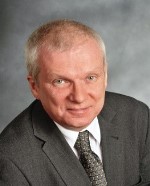and policy programs?
Let’s talk about public projects!
SERIES ARTICLE
By Stanisław Gasik
Warsaw, Poland
Introduction
In my previous article in PM World Journal (Gasik, 2023), I pointed out that the main stakeholders of public programs are the public and the government formed by the ruling groups. One of the most interesting and important issues in defining public policies, or reasons for creating and launching policy programs, is the institutional support for these activities. Institutions are the organizations and processes that define our ways of functioning in society (Ostrom, 2008). Do the institutions involved in policymaking function to ensure that policies and programs reflect the will of decision-makers and ensure that they stay in power, or solve public problems?
Ruling Politicians
In the decision-making process, one entity must always be present: it is just the decision-maker. It may be a single ruler (a king, a president, the first secretary, or so), or a ruling group – a single party or coalition. The simplest decision-making process is just making decisions about implementing public policies or policy programs directly by that decision-maker.
With such solutions, the impact of knowledge on policymaking does not have to be significant. There is a high probability that the policies will be geared to the needs of the ruling group. The rulers have their own visions of how the state is to function in a given area. Recommendations from experts, usually ideologically close to those in power, are used informally. Experts who represent a different view of specific problems are ignored and sometimes persecuted. In this approach, those in power often skip the creation of public policies and directly decide on the implementation of major programs or projects themselves. Sometimes decisions are based on political ideologies professed by those in power. “We will use only our own resources in the economic development of our country.” “A huge international airport is to be built in our country.” “We will change the course of a great river to feed the desert regions of our country.” “We will invade a neighboring country so that we will become the largest power in our region.”
This method of determining policy directions meets the definition of an autocratic system.
Governmental Units
The first type of institution supporting policymaking oriented toward public problems is the creation of policy analysis units in government structures. Of course, finally, the decisions are made by politicians, but they are supported by these teams. Such units work in many governments.
The Government Strategic Analysis Center (the word “strategy” is often used for such teams – strategy is one of the hierarchical levels of public policies) operates in the Lithuanian government (Lithuania Government, 2021). The Government Strategy Department works in the Finnish government (Finland Prime Minister’s Office, 2021). The Policy Planning Section works in Somalia (Government of Somalia, 2023).
Analytical units may also operate in individual departments (or ministries). For instance, in China, there is a Policy Planning Department within the government structures dealing with foreign policy issues (MoFA PRoC, 2023). In the United States work, e.g., the Policy and Strategy Analysis Team, the US DoT (USA DoT, 2021), and in Ireland the Strategic Research and Analysis Division of the Department of Transport Ireland (Ireland DoT, 2021).
The inclusion of units of this type in the decision-making process makes huge progress in comparison with decision-making solely by governing entities (rulers or ruling parties).
More…
To read entire article, click here
Editor’s note: This article is the fourth in a series related to the management of public programs and projects, those organized, financed and managed by governments and public officials. The author, Dr. Stanisław Gasik, is the author of the book “Projects, Government, and Public Policy”, recently published by CRC Press / Taylor and Francis Group. That book and these articles are based on Dr. Gasik’s research into governmental project management around the world over the last decade. Stanisław is well-known and respected by PMWJ editors; we welcome and support his efforts to share knowledge that can help governments worldwide achieve their most important initiatives.
How to cite this paper: Gasik, S. (2023). Who defines public policies and policy programs? Let’s talk about public projects, series article, PM World Journal, Volume XII, Issue IV, April. Available online at https://pmworldjournal.com/wp-content/uploads/2023/04/pmwj128-Apr2023-Gasik-Who-defines-public-policies-and-policy-programs.pdf
About the Author

Stanisław Gasik, PhD, PMP
Warsaw, Poland
![]()
Dr. Stanisław Gasik, PMP is a project management expert. He graduated from the University of Warsaw, Poland, with M. Sc. in mathematics and Ph. D. in organization sciences (with a specialty in project management). Stanisław has over 30 years of experience in project management, consulting, teaching, and implementing PM organizational solutions. His professional and research interests include project knowledge management, portfolio management, and project management maturity. He is the author of the only holistic model of project knowledge management spanning from the individual to the global level.
Since 2013, his main professional focus has been on public projects. He was an expert in project management at the Governmental Accountability Office, an institution of the US Congress. He is the author of “Projects, Government, and Public Policy,” a book that systematizes knowledge about government activities in the area of project management.
He was a significant contributor to PMI’s PMBOK® Guide and PMI Standard for Program Management and contributed to other PMI standards. He has lectured at global PMI and IPMA congresses and other international conferences.
His web page is www.gpm3.eu.
To view other works by Dr. Gasik, please visit his author showcase in the PM World Library at https://pmworldlibrary.net/authors/stanislaw-gasik-phd-pmp/









